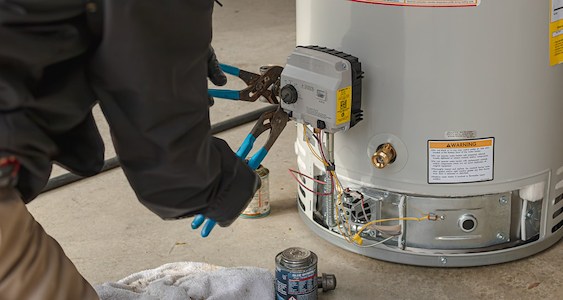The Challenges of Working with Home Warranty Companies: A Contractor’s Perspective

Home warranty companies may seem like a great solution for homeowners looking to protect their investment, but for contractors and service professionals, these companies can present significant challenges. While they promise peace of mind to homeowners, the reality behind the scenes can be frustrating for those providing the service. From delayed payments to unprofessional interactions, here are some of the biggest hurdles contractors face when working with home warranty companies.
1. Delayed and Inconsistent Payments
One of the most common complaints from contractors is that home warranty companies are notorious for slow or delayed payments. Many contractors are forced to chase payments for weeks, if not months, after completing the job. In an industry where cash flow is crucial to running a business, these delays can create a significant financial burden.
In addition to delays, the rates paid by home warranty companies are often far below industry standards. They may agree to a set rate that doesn’t reflect the true cost of the work or materials needed. As a result, contractors may end up performing complex repairs or installations for minimal compensation.
2. Unclear Communication and Unprofessional Behavior
Another major challenge is the lack of clear communication. Home warranty companies often fail to provide detailed information about the job, the homeowner's needs, or even the scope of coverage. This can leave contractors walking into situations unprepared, leading to time-consuming back-and-forth communication to clarify what’s actually needed.
On top of that, contractors frequently report unprofessional behavior from home warranty representatives. Whether it’s dismissive attitudes or slow responses, dealing with such companies can feel like an uphill battle. This lack of professionalism not only makes the job harder but also reflects poorly on contractors, who must act as the middlemen between the homeowner and the warranty company.
3. Conflicting Interests: Contractors vs. Home Warranty Companies
Home warranty companies are focused on minimizing costs, which often conflicts with the goal of delivering high-quality service to the homeowner. This can create a difficult dynamic for contractors. Warranty companies might push for cheaper, temporary fixes rather than addressing the root cause of an issue.
Contractors, on the other hand, are professionals who take pride in their work and want to provide the best solution for the homeowner. But when warranty companies limit what can be done, contractors can be left in a bind, forced to choose between a proper repair or one that fits within the narrow constraints of the warranty coverage.
4. Damage to Reputation
When a contractor works with a home warranty company, they are often seen as an extension of that company by the homeowner. If the warranty company is unprofessional, provides poor customer service, or refuses to cover necessary repairs, the contractor may take the brunt of the blame. This can lead to negative reviews, complaints, and damage to the contractor’s reputation—even if they did their best to deliver quality service within the constraints of the warranty.
5. Lack of Control Over Scheduling and Workload
Home warranty companies typically control when and where contractors are dispatched. This can lead to an unmanageable workload for contractors, especially if they’re being called out to multiple homes for low-paying or minor repairs. Contractors often find themselves overworked and underpaid, with little control over their schedules. It can also lead to scheduling conflicts with other, higher-paying clients, making it difficult to prioritize the work that is most valuable to the contractor’s business.
6. Legal and Liability Concerns
Another concern is the liability that can arise from working under the directives of a home warranty company. If the company pushes a contractor to perform a repair that isn’t in line with industry standards, the contractor could be held responsible for future problems. This puts the contractor at risk of legal repercussions or claims, even when they were just following the warranty company’s guidelines.
Conclusion: Is It Worth the Trouble?
For many contractors, the challenges of working with home warranty companies outweigh the benefits. The combination of delayed payments, low rates, poor communication, and the potential for damage to their reputation makes it difficult for contractors to justify these partnerships.
While home warranty companies offer value to homeowners, contractors need to carefully consider whether these partnerships are worth the frustration. For some, it might make more sense to focus on direct relationships with customers, where there’s greater control over pricing, communication, and the quality of work. Ultimately, contractors deserve to be compensated fairly and treated professionally—and for many, that means saying no to home warranty companies.
